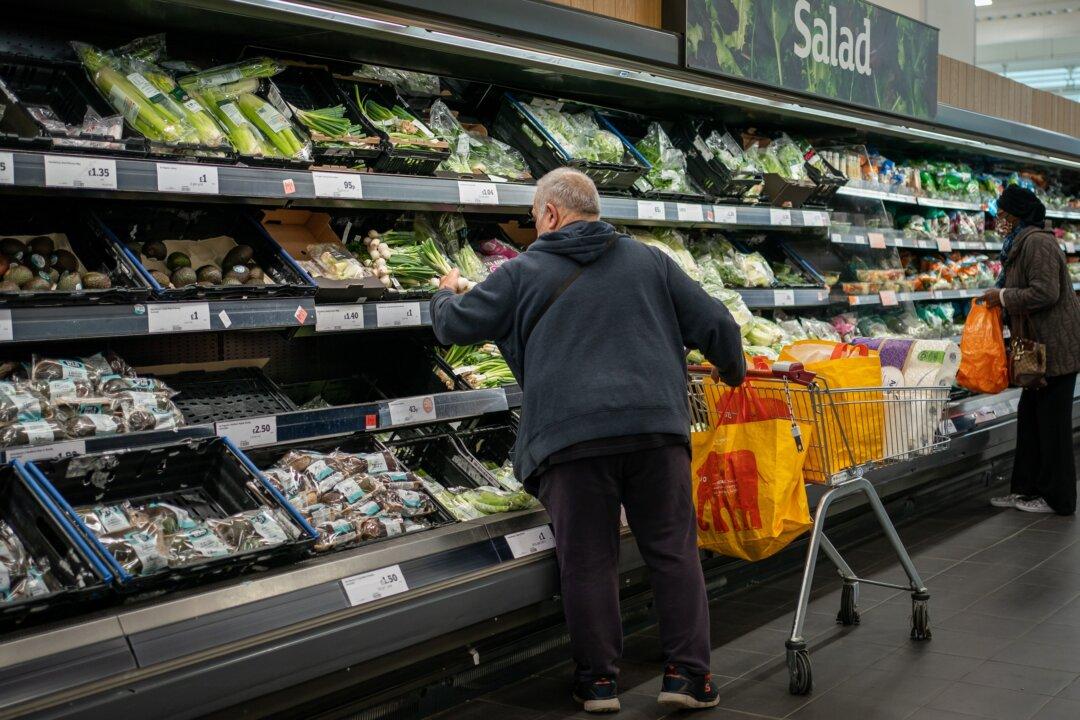British workers’ incomes have been shrinking in real terms amid soaring inflation despite significant wage rises, official figures show.
According to the latest data released by the Office for National Statistics (ONS) on Sept. 13, the average total pay received by UK workers, including bonuses, grew by 5.5 percent in May to July 2022.





